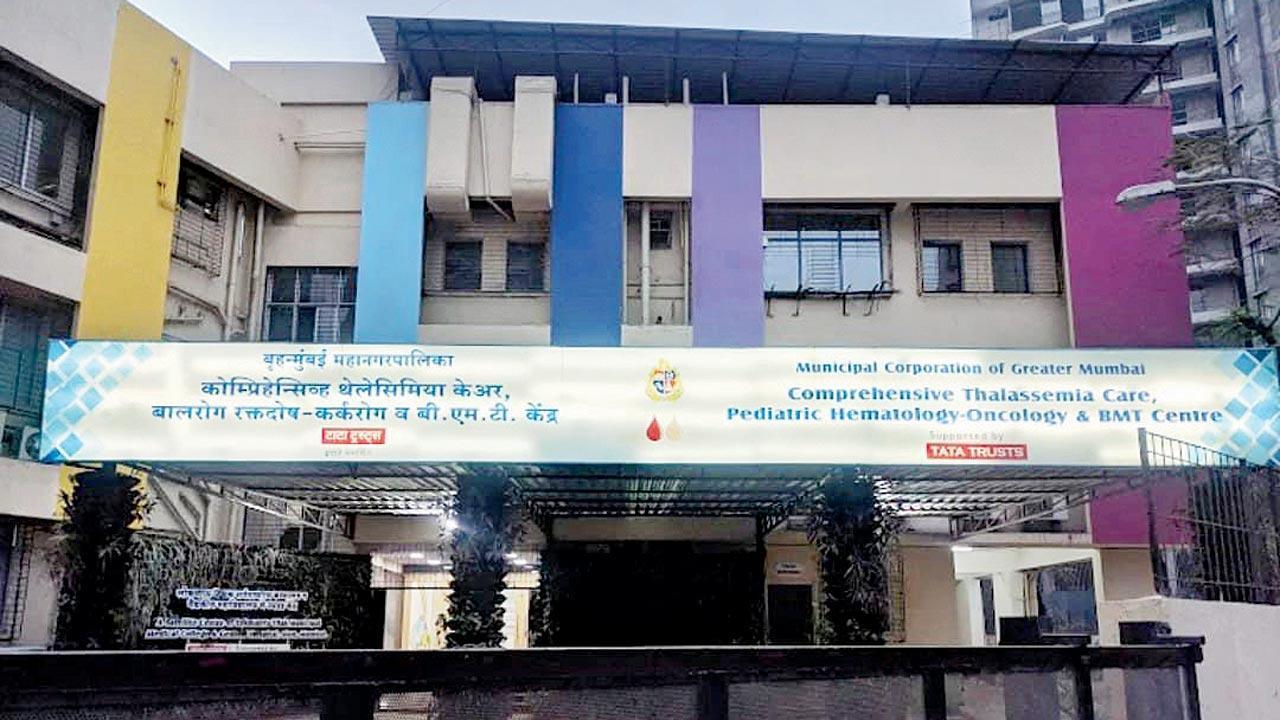BMC facility provides hope and free treatment to underprivileged patients in need

BMC-run Comprehensive Thalassemia Care, Pediatric Anemia, Cancer, and Bone Marrow Transplant Treatment Centre in Borivli
The Brihanmumbai Municipal Corporation (BMC)-run Comprehensive Thalassemia Care, Pediatric Anemia, Cancer, and Bone Marrow Transplant Treatment Centre in Borivli (East) has achieved a significant milestone of completing 300 life-changing bone marrow transplantations (BMT) for children since its establishment five years ago.
ADVERTISEMENT
According to Dr Mamta Mangalani, the director of the centre, the facility offers free treatment to those who cannot afford the procedure, thanks to donor contributions.
Upon admission to the centre, children undergo a comprehensive process involving tests, donor identification, and counselling for parents, which may take around 15-20 days. “We have counsellors who take care of the emotional well-being of children and parents. The doctors ensure to explain to the family what is happening, as children may have to stay in isolation in a HEPA-filtered room post the procedure,” said Dr Mangalani.
 Additional Municipal Commissioner (Western Suburbs) Dr Sudhakar Shinde during a visit to the centre recently
Additional Municipal Commissioner (Western Suburbs) Dr Sudhakar Shinde during a visit to the centre recently
Siblings are considered ideal donors for the BMT procedure. Out of the 300 transplants performed, 108 donors were complete matches, including parents and siblings. Additionally, twelve transplants were obtained from unrelated donors matched through a stem cell donor registry.
Among the patients, 110 received bone marrow transplants using their own stem cells (autologous transplants), typically used for lymphoma cases, costing about R8 lakh to Rs 10 lakh at private hospitals in Mumbai. On the other hand, allogeneic transplants, involving the use of someone else’s stem cells, can cost about Rs 17 to 18 lakh at private hospitals, and in rare instances without a full-match donor, it may cost about Rs 30 lakh.
Dr Mukesh Agarwal, former head of the paediatrics department at KEM hospital and professor head at KJ Somaiya Medical College, emphasised that BMT is mainly conducted for thalassemia and leukaemia cases. “While anyone can donate bone marrow, the donor’s HLA type must match that of the recipient to ensure a successful transplant,” he said.
HLA (Human Leukocyte Antigen) helps identify specific proteins on the surface of our cells, including bone marrow cells, aiding the body in distinguishing between its natural inhabitants and foreign cells.
Recipients of BMT need to take medications for their entire lives to prevent rejection of the transplant.
Apart from the Borivli facility, the BMC has two other facilities for transplants at Sion hospital and Tata hospital. Dr Mohan Joshi, Dean at Sion hospital, revealed that about 25 paediatric bone marrow transplants are done at his hospital every year. “We need to keep the patient in special rooms for 30 days after bone marrow transplant,” he said.
The hospital plans to expand the facility further in Dharavi at Eknathrao Gaikwad Hospital. “Then we will be able to do about 60 to 70 transplants per year,” Dr Joshi said. He added, “We give chemotherapy drugs before the transplant. That is what is important and risky. Therefore, they need to be managed in an absolute sterile room, where there is no risk of infection.
Rs 8–10lakh
Cost of bone marrow transplant at pvt hospitals
 Subscribe today by clicking the link and stay updated with the latest news!" Click here!
Subscribe today by clicking the link and stay updated with the latest news!" Click here!







